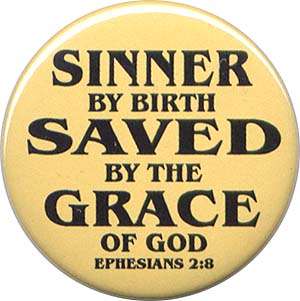One of the most telling things that rings so true about the Gospels of the New Testament is the way in which they narrate the various characteristics of the people who followed Jesus most closely.
They were ordinary people who were wrestling with the impact of the unmistakable work of God amongst them, and it is that which allows us to draw so closely to the 'taste and tone' of what Jesus conveys as He brings heaven amongst them.
One of the key lessons to learn from this manner of unpacking the good news is in respect to the true nature what's good - what actually amounts to holiness.
In Mark 7, Jesus sits to eat with His disciples after a typical day amidst the heat and the dust ministering to so many... and the religious folk present are mortified.
There was no ceremonial washing, not lengthy actions of purification; the disciples just reclined at the table and tucked in, enjoying the food and each other's company, in a state viewed as entirely impure to some others present.
They were not only unwashed - they were unsanctified, unworthy, in effect, to participate without purifying themselves.
Surely, they reasoned, Jesus, a rabbi and a follower of God would have no part of this outrage. The requirements of "the law", they ranted, must be adhered to!
Before we unpack what happens next, how do we evaluate such obviously earthy behaviour? Is it acceptable, or troublesome to us? How would we respond to such men as these, given their cultures taboos? Do we see ourselves in their enjoyment of this moment, or, are we like those present who were standing in judgement of such obscenity?
Religion cannot abide something so unhindered by what it deems essential to be godly. The adherents of this case express their shock to Jesus - why would something so 'unclean' be allowed amongst his closest group? Surely, this must be admonished and ended quickly in the most stringent manner!
Notice what Jesus says in response to their cries of disgust.
There is a realm of difference between those who 'play' at being godly, and those that are (the reference He draws from Isaiah is telling them just this).
What God commands, and what they couldn't begin to comprehend, was something far more costly and total than they could ever achieve. The disciples of Jesus knew they were just straightforward men, fallen and deep in need, which is why they were with Jesus. Religiosity merely hides such truth behind a veneer of arrogant deceit (that we can comply to our own definition of goodness and that will suffice). The true evil of this is that it rises in us because we are afraid to partake of what God is really offering, and think our side-stepping can provide an alternative, acceptable to Him whilst stroking our own egos.
So, what are we to do? What, as Christians today, is required of us?
In this superb little presentation, Chad Bird lays it out beautifully. Enjoy.




